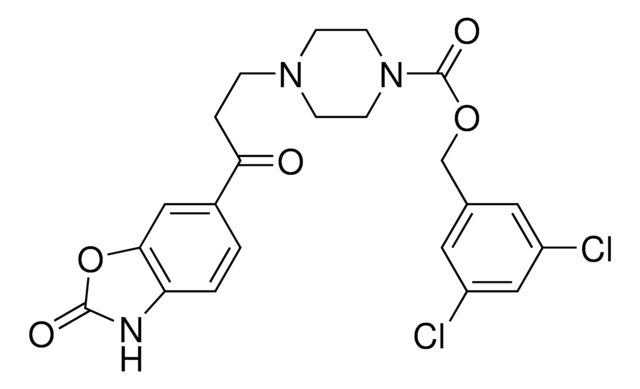H8384
(Hydroxypropyl)methyl cellulose
viscosity 40-60 cP, 2 % in H2O(20 °C)(lit.)
Synonym(s):
2-Hydroxypropyl methyl cellulose ether
About This Item
Recommended Products
form
powder
Quality Level
mol wt
~22 kDa
color
beige
viscosity
40-60 cP, 2 % in H2O(20 °C)(lit.)
solubility
water: 10 mg/mL, clear to slightly hazy
storage temp.
room temp
SMILES string
O3[C@H]([C@@H]([C@H]([C@@H]([C@H]3COCC(O)C)OCC(O)C)OCC(O)C)OCC(O)C)O[C@@H]4[C@H](O[C@H]([C@@H]([C@H]4OCC(O)C)OCC(O)C)OCC(O)C)COCC(O)C.O1[C@H]([C@@H]([C@H]([C@@H]([C@H]1COC)OC)OC)OC)O[C@@H]2[C@H](O[C@H]([C@@H]([C@H]2OC)OC)OC)COC
InChI
1S/C36H70O19.C20H38O11/c1-19(37)9-45-17-27-29(47-11-21(3)39)31(48-12-22(4)40)34(51-15-25(7)43)36(54-27)55-30-28(18-46-10-20(2)38)53-35(52-16-26(8)44)33(50-14-24(6)42)32(30)49-13-23(5)41;1-21-9-11-13(23-3)15(24-4)18(27-7)20(30-11)31-14-12(10-22-2)29-19(28-
Looking for similar products? Visit Product Comparison Guide
Application
Features and Benefits
Quality
Preparation Note
Dispersion in hot water:
1. Heat approximately 1/3 the required volume of water to at least 90 oC.
2. Add the powder to the heated water with stirring or agitation.
3. Agitate the mixture until the particles are thoroughly wetted and evenly dispersed.
4. Add the remainder of the water (cold water) to lower the temperature of the dispersion. As the product cools, it will reach a temperature at which it becomes water soluble. It will then begin to hydrate and dissolve, increasing the viscosity of the solution.
5. Continue agitation for at least 30 minutes after the proper temperature is reached for solubility. The solution is now ready to use.
Dry blending:
1. Combine powder with other dry ingredients. The suggested ratio of dry powder to hydroxypropylmethylcellulose is 7:1 to 3:1.
2. Thoroughly blend the dry ingredients.
3. Add the dry mixture to water with agitation.
4. Agitate until the product has completed hydrated and the solution is consistently smooth. The solution is now ready for further processing/use.
Dispersion in non-solvent medium:
1. Hydroxypropylmethylcellulose may be dispersed in non-solvent media such as vegetable oil, polyethylene glycol, glycerin, corn syrup, and concentrated salt solutions. A ratio of 5-8 parts non-solvent to 1 part hydroxypropylmethylcellulose is recommended to obtain a liquid slurry.
2. Agitate the mixture until the particles are evenly dispersed.
3. This dispersion may be added to cold water or cold water may be added to the dispersion.
4. Continue mixing until the powder is completely hydrated and the solution is smooth. Additional ingredients may now be added to the formulation.
Other Notes
Storage Class Code
11 - Combustible Solids
WGK
WGK 1
Flash Point(F)
Not applicable
Flash Point(C)
Not applicable
Personal Protective Equipment
Choose from one of the most recent versions:
Certificates of Analysis (COA)
Don't see the Right Version?
If you require a particular version, you can look up a specific certificate by the Lot or Batch number.
Already Own This Product?
Find documentation for the products that you have recently purchased in the Document Library.
Customers Also Viewed
Our team of scientists has experience in all areas of research including Life Science, Material Science, Chemical Synthesis, Chromatography, Analytical and many others.
Contact Technical Service


